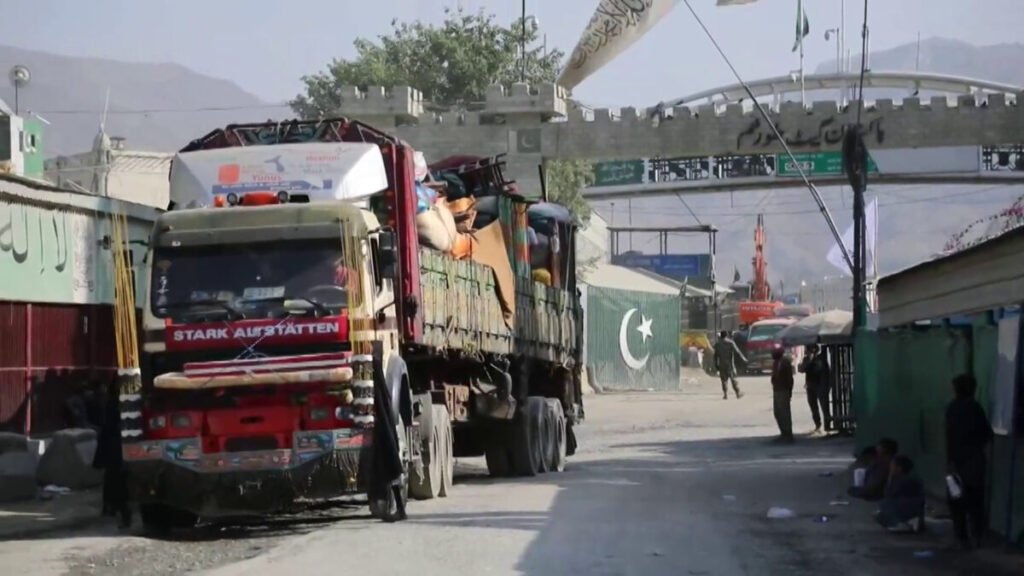Border closures leave thousands delayed on both sides and result in a $12 million trade loss.

Officials confirmed that all trade and travel between Pakistan and Afghanistan were suspended on Wednesday as the Torkham border crossing remained closed for the sixth day in a row.
Cross-border travel has been negatively disrupted by the shutdown, which was brought on by disputes over development in disputed areas.
Customs authorities said they have lost an estimated $12 million as a result of the four-day trade standstill. Nearly 10,000 individuals cross the Torkham border every day, according to immigration officials, and thousands are left stuck on both sides as a result of the shutdown.
Pakistani and Afghan border officials have engaged in several rounds of negotiations, according to Mujeeb Khan Shinwari, head of the Torkham Customs Clearing Agents Association, who spoke to The News.
He also mentioned that Customs Collector Mateen Alam participated in the talks and expressed hope that a deal had been struck to quickly reopen the border.
Particularly impacted are daily wage workers and local traders. About 800 daily wagers rely on the crossing for their income, and many are currently having difficulty because of the prolonged stoppage, according to trader Qari Nazeem Gul.
Officials are optimistic that, subject to final clearance from all parties, trade and pedestrian traffic will soon resume.
After tensions between Pakistani and Afghan forces increased over the latter’s construction of a bunker at Zero-Point, the Torkham border was blocked to all forms of movement on Saturday, February 22.
Security sources claim that Pakistan’s Frontier Corps (FC) reacted when Afghan soldiers tried to construct a bunker in a disputed location close to the border.
As a precaution, Pakistani authorities moved police, immigration, and customs officers from Torkham Bazaar to Landikotal, and both sides have strengthened their fortifications. Fears of an armed conflict have increased as both sides have adopted defensive stances.
Such interruptions regularly affect the Torkham crossing, a crucial commerce route, and have a negative effect on both countries’ economies.




